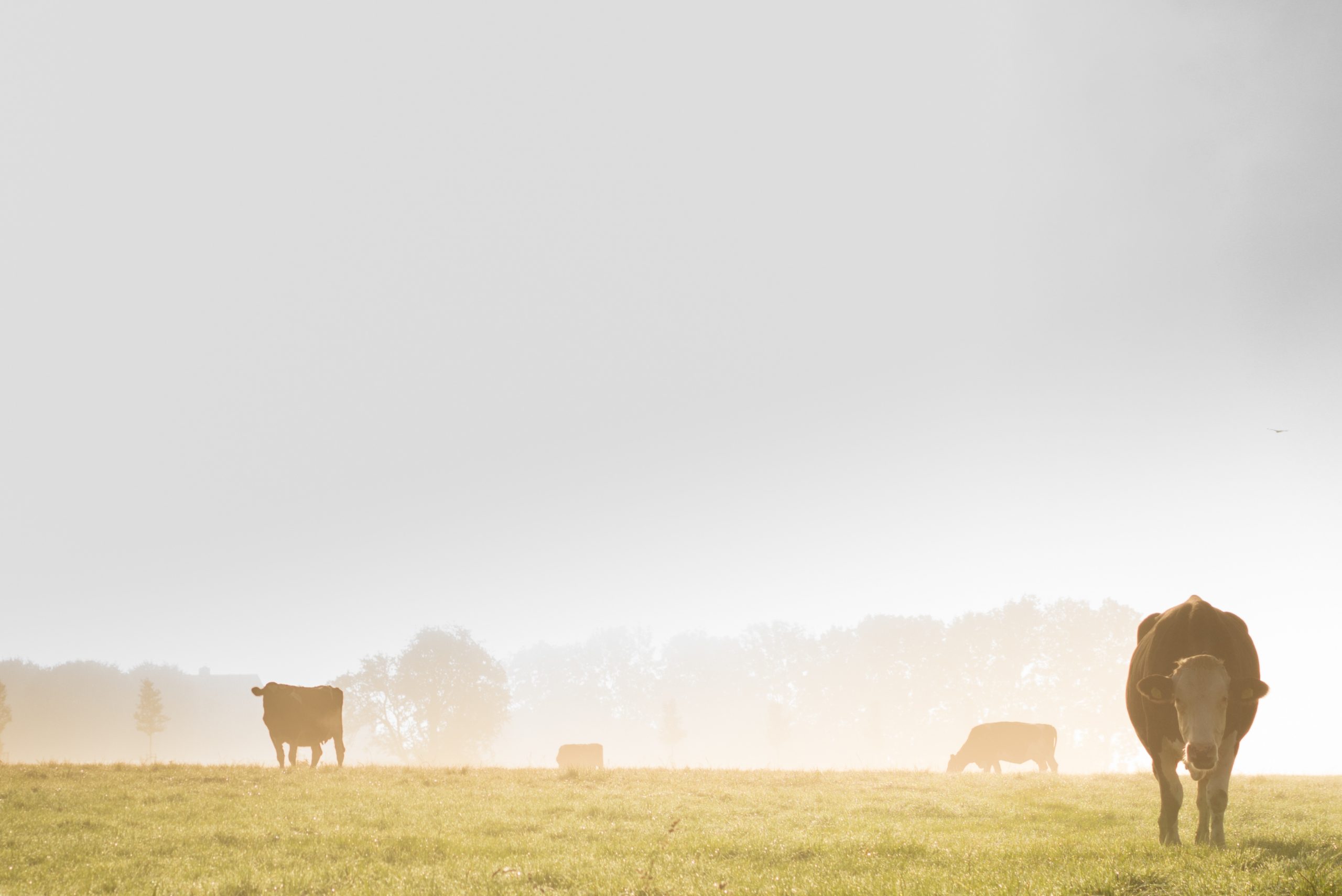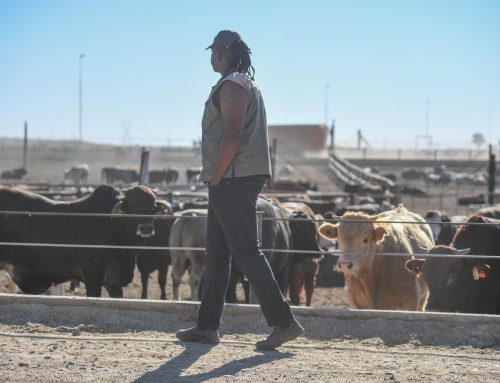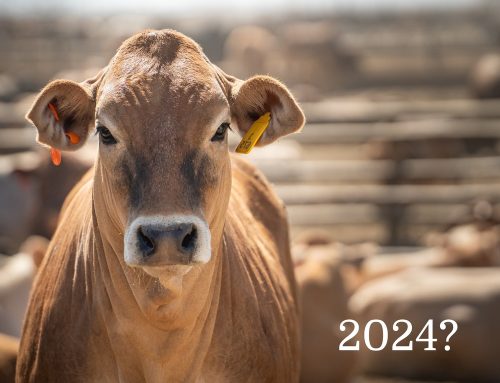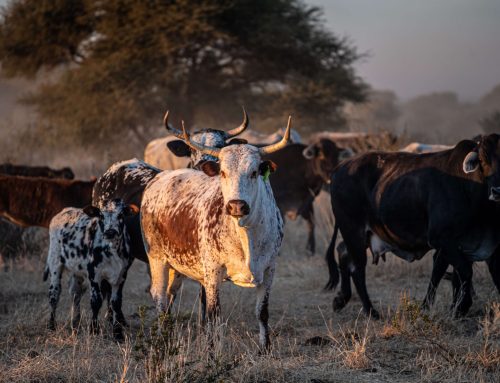Foot-and-Mouth Disease Outbreak Strikes Eastern Cape
Industry role-players urged to act responsibly
05 May 2024: The Eastern Cape is now grappling with the impact of Foot-and-Mouth Disease (FMD), becoming the fourth province affected by this highly contagious ailment among cattle. Government authorities confirmed the outbreak on a farm located in Humansdorp.
Expressing his apprehensions, Roelie van Reenen, supply chain executive at Beefmaster Group, a prominent beef product supplier in South Africa and global markets, shared, “Having recently visited the Eastern Cape, I’m concerned that the situation might be more widespread than believed, given the apparent absence of biosecurity measures.”
Van Reenen emphasised the industry’s crucial role, stating, “We as the industry are the only defence against FMD. The virus does not spread on its own. We, as the industry, spread it through negligence and our laissez-faire attitude.”
Reports indicate that the affected farm is now under quarantine, with a comprehensive epidemiological investigation underway to pinpoint the virus’s potential source. In response to the outbreak, the Kouga municipality has enforced strict measures, prohibiting the movement of animals within its borders to contain the highly contagious infection.
Van Reenen emphasises the ongoing threat that FMD poses by citing a number of factors that contribute to its persistence. He states, “FMD continues to be a threat due to factors like animal movement from FMD control zones, inadequate vaccination coverage, and a lack of awareness.”
He highlights the crucial role of all industry participants in minimising the transmission of the disease. Additionally, he stresses the importance of prioritising responsibility to effectively limit its spread, noting, “While biosecurity measures have demonstrated effectiveness in mitigating FMD spread, their success hinges on rigorous enforcement by industry players.”
Van Reenen suggests that a proactive approach involves restricting cattle movement and prioritising thorough veterinary inspections and authorization when purchasing cattle. He maintains the importance of industry stakeholders asking pertinent questions regarding traceability, including geographical origins, during cattle procurement. Conducting proper due diligence in scrutinising the source of purchased animals is paramount for disease prevention.
Furthermore, Van Reenen notes that numerous industry participants have taken significant measures at feedlots and farms to curb disease outbreaks. These efforts include implementing innovative strategies such as bubble or isolation hubs. However, he believes there is room for additional action to enhance disease prevention measures.
“When purchasing cattle from locations where animals congregate, it’s essential to implement stringent biosecurity measures. This involves assessing the existing biosecurity protocols at the gathering site and ensuring that cattle undergo quarantine for a specified duration, ideally a minimum of 28 days. Additionally, it’s crucial to obtain certification from qualified veterinarians confirming the animals’ health and freedom from diseases.”
Van Reenen goes on to argue that the greatest issue is complacency and acting as though there is no imminent threat or risk. “We cannot continue to conduct business without robust biosecurity measures. Relying solely on relationships or past experiences, saying, ‘I know where my cattle comes from because I’ve been buying from this place for many years,’ is no longer sufficient. No one is immune to FMD, and addressing it requires a serious commitment to implementing stringent measures,” Van Reenen stresses.
He adds that these measures will significantly safeguard the beef industry, a pivotal contributor poised to fuel the red meat sector’s expansion. Projections indicate a potential addition of over R12 billion to South Africa’s agricultural GDP annually by 2030, underscoring the industry’s vital role in economic growth.
“The beef industry has diligently pursued new market avenues in recent years. Preserving these export channels, alongside exploring potential ones, is imperative in mitigating the impact of FMD risk,” Van Reenen stresses, highlighting the precarious scrutiny the nation faces during outbreaks.
Notably, Beefmaster Group recently unveiled a milestone achievement: South African beef is now accessible on the shelves of the Kingdom of Saudi Arabia. This accomplishment follows a significant bilateral agreement signed in 2022, underscoring the industry’s global reach and potential.
“With only 4% of our nation’s beef currently exported, there’s vast potential for growth in the agricultural sector. As the beef industry grapples with challenges, collective efforts are essential to unlocking additional export opportunities,” Van Reenen concludes, emphasising the need for collaborative action within the industry.
In conclusion, the recent FMD outbreak in the Eastern Cape highlights the urgent need for stringent biosecurity measures in the cattle industry. Proactive steps, such as enforcing controls, conducting thorough inspections, and advocating responsible procurement practices, are crucial for mitigating risks and preserving animal health and economic stability.
Moreover, with the beef industry poised to contribute significantly to South Africa’s agricultural GDP, safeguarding against disease threats is imperative for sustaining growth and unlocking export opportunities. By encouraging collaboration and adhering to best practices, stakeholders can strengthen resilience and assure the industry’s long-term success.






